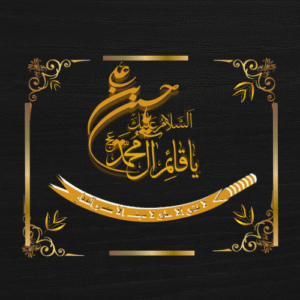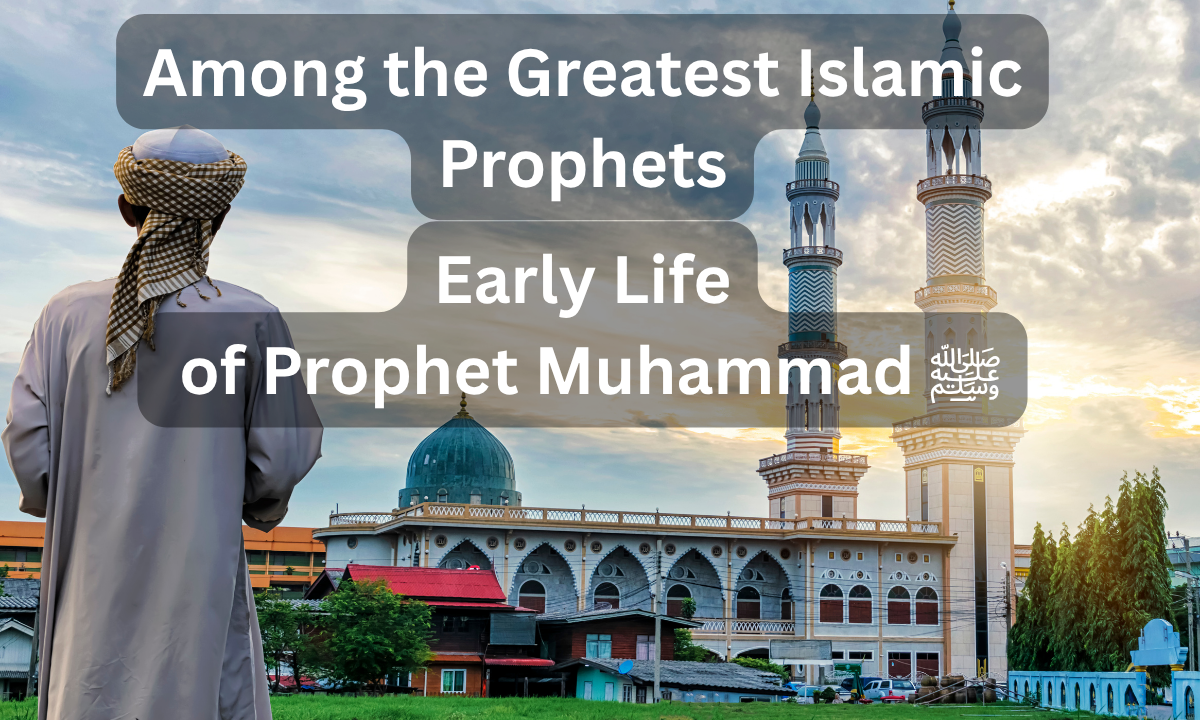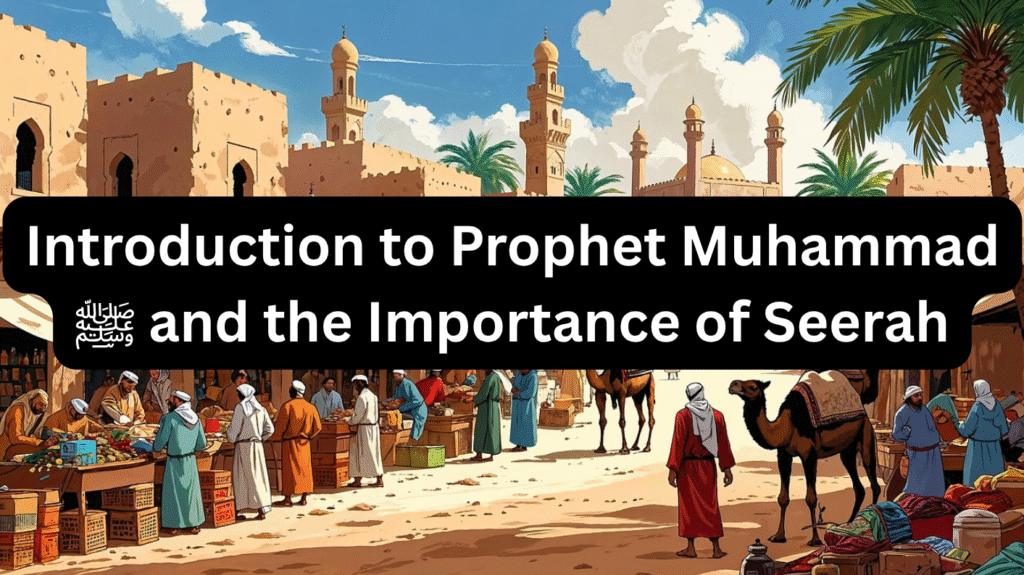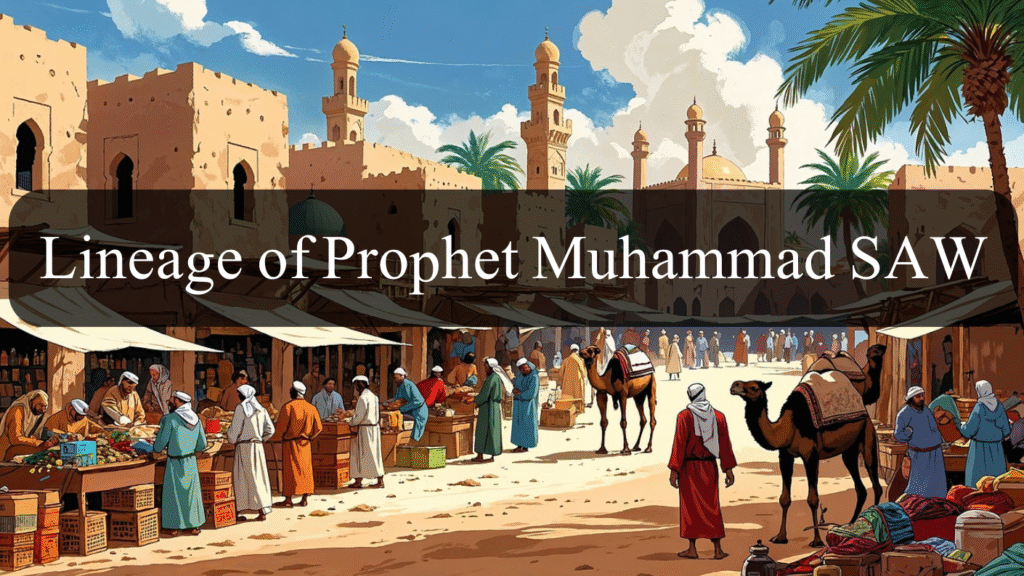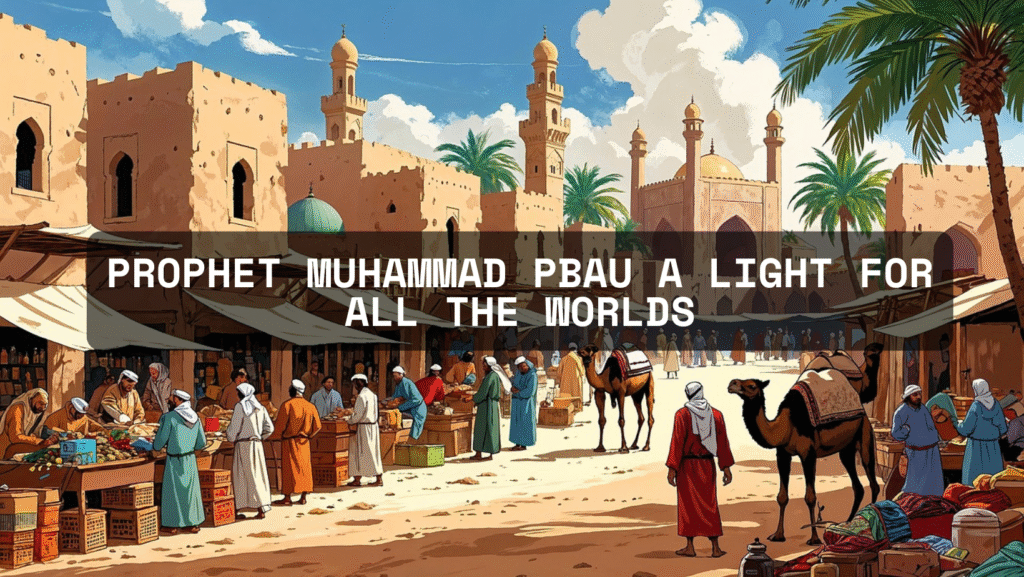Early Life of Prophet Muhammad ﷺ Among the Greatest Islamic Prophets
Prophet Muhammad ﷺ, the final messenger in the line of Islamic prophets, was born in 570 CE in the holy city of Makkah. His early life holds deep spiritual, emotional, and historical importance not just for Muslims, but for anyone studying the Islam religion and its divine lineage of messengers.
His Birth and Noble Lineage
The Prophet ﷺ was born into the respected Quraysh tribe, specifically the Banu Hashim clan. His father, Abdullah, passed away before he was born, and his mother, Amina bint Wahb, nurtured him during his early infancy. At birth, he was named Muhammad, meaning “the praised one.”
According to authentic narrations, his grandfather Abdul Muttalib took responsibility for naming and protecting him. These early days were filled with the love of a family who knew they were raising someone destined for greatness.
Foster Care with Halima Saadia
In Arabian tradition, noble families would often send their newborns to the desert to be raised in a healthier environment. The Prophet ﷺ was given into the care of Halima Saadia from the Banu Saad tribe. During her care, her household witnessed unprecedented blessings — their livestock flourished, and their home was filled with barakah (divine blessings).
Halima grew to love the Prophet ﷺ as her own child. She once said, “From the moment he entered our home, everything changed.”
This phase of the Prophet’s life, under Halima’s care, shows the early signs of his divine selection among the Islamic prophets.
The Incident of the Opened Chest (Shaqq al-Sadr)
One of the most well-known events during his early childhood is the splitting of his chest by angels. This incident, witnessed by Halima’s son, terrified her family, and she eventually returned the young Muhammad ﷺ to his mother. Scholars mention this as a symbol of divine purification, a key moment showing he was being prepared for future prophethood.
Return to His Mother and Grandfather
At around 4 or 5 years old, he was reunited with his mother Amina. She took him to visit Yathrib (later Madinah), where she showed him the graves of his father and relatives. Sadly, on their return journey, she fell ill and passed away in Abwa. The Prophet ﷺ became an orphan.
His care was then passed to his grandfather, Abdul Muttalib, who showed him deep affection. Two years later, after Abdul Muttalib’s death, he came under the care of his uncle Abu Talib.
Lessons from the Prophet’s Early Life
The early life of Prophet Muhammad ﷺ reflects not only his personal strength and patience but also how Allah prepared him for his final mission. Unlike many other Islamic prophets, the Prophet ﷺ faced complete orphanhood, yet his character remained pure and strong.
His connection to earlier Islamic prophets such as Ibrahim (Abraham), Musa (Moses), and Isa (Jesus) is a continuation of divine revelation. The Islam religion teaches that all prophets were sent with the same core message: to worship one God and live with justice, kindness, and mercy.
Conclusion
Prophet Muhammad ﷺ’s early life — filled with trials, loss, and divine care — is a foundational chapter in the Seerah and a significant part of the lives of Islamic prophets. Understanding his childhood helps us appreciate how Allah shapes His messengers to lead and guide humanity.
In the next post, we will explore the teenage years and early adulthood of the Prophet ﷺ, focusing on his honesty, integrity, and work as a trader — all while preparing for his final mission in the Islam religion.

